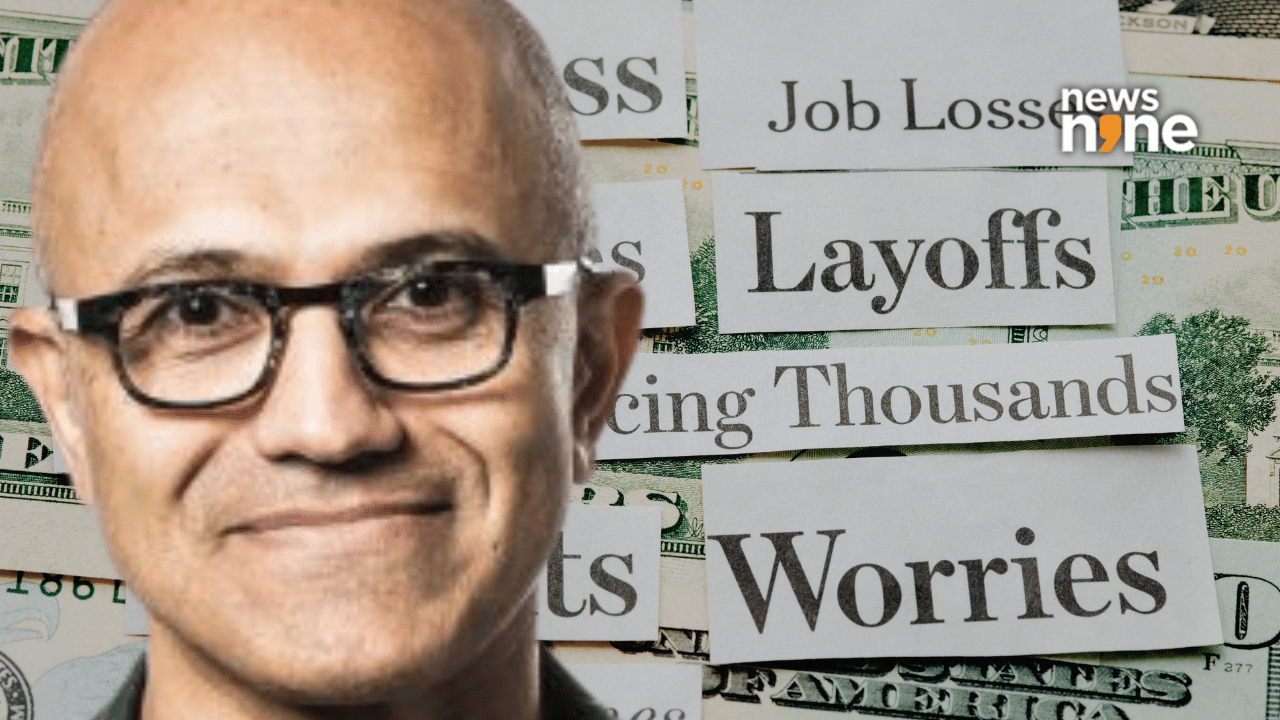New Delhi: Microsoft’s latest round of job cuts, affecting more than 9,000 employees, has left many in the tech world shaken. In a deeply personal memo shared with employees, CEO Satya Nadella acknowledged the emotional weight of these decisions, calling the layoffs one of the toughest moments the company has faced in recent years. Despite strong financial performance, including over $75 billion in net income across three quarters, Microsoft has pressed ahead with job reductions as it shifts focus toward AI and automation.
The cuts represent around 7 percent of Microsoft’s global workforce, the biggest since 2014. While investors have remained optimistic, pushing Microsoft’s stock up by 21 percent this year to cross $500 per share, internally the mood has been far more somber.
Nadella calls layoffs ‘the most difficult decisions’
In the memo, Nadella did not shy away from addressing the emotional toll. “Before anything else, I want to speak to what’s been weighing heavily on me, and what I know many of you are thinking about: the recent job eliminations,” he wrote to Microsoft’s 200,000-plus employees. “These decisions are among the most difficult we have to make. They affect people we’ve worked alongside, learned from, and shared countless moments with – our colleagues, teammates, and friends.”
The message landed hard among employees, many of whom were still processing the news of sudden exits. While the company is growing in revenue and reach, the contrast between profits and layoffs hasn’t gone unnoticed.
Nadella addressed the contradiction directly. “By every objective measure, Microsoft is thriving – our market performance, strategic positioning, and growth all point up and to the right,” he wrote. “We’re investing more in CapEx than ever before. Our overall headcount is relatively unchanged, and some of the talent and expertise in our industry and at Microsoft is being recognized and rewarded at levels never seen before. And yet, at the same time, we’ve undergone layoffs.”
The ‘enigma of success’ in a fast-changing industry
In a striking turn of phrase, Nadella described the current situation as “the enigma of success in an industry that has no franchise value.” He explained that the tech industry doesn’t offer permanent safety or guarantees, and that companies must constantly evolve. “Progress isn’t linear. It’s dynamic, sometimes dissonant, and always demanding,” he said.
He called this period a time of “unlearning” and “learning,” urging teams to adapt and embrace change. The memo reflects a bigger pivot within Microsoft as it transitions from a software-first company to what Nadella describes as an “intelligence engine.” That means putting massive bets on artificial intelligence, with over $80 billion being poured into AI infrastructure.
AI shift drives biggest restructuring since 2014
This year alone, over 80,000 jobs have been cut across tech globally, driven by companies reshaping teams to focus on automation and AI. Microsoft is right at the centre of this change.
Nadella’s vision for Microsoft’s future includes tools and agents powered by AI that can assist anyone, anywhere. “All 8 billion people could summon a researcher, an analyst, or a coding agent at their fingertips,” he said. It’s a bold idea, but one that clearly comes with trade-offs.
Microsoft’s investments reflect this shift. From AI chips to large data centres and new business models, everything is being reshaped for what Nadella calls a new “production function.”
Gratitude, but no promises
To those who lost their jobs, Nadella offered appreciation, but not reassurances. “Their contributions have shaped who we are as a company, helping build the foundation we stand on today,” he wrote. The note had no mention of job security for those still with the company.
Instead, Nadella asked remaining employees to adopt what he called a “growth mindset” during the transformation. He described the current period as “messy,” urging workers to stay focused on what lies ahead.
As Microsoft closes one chapter and opens another, the emotional tone of Nadella’s memo has sparked mixed reactions. Some see it as a rare moment of vulnerability from a CEO navigating hard times. Others question the balance between financial performance and people.
